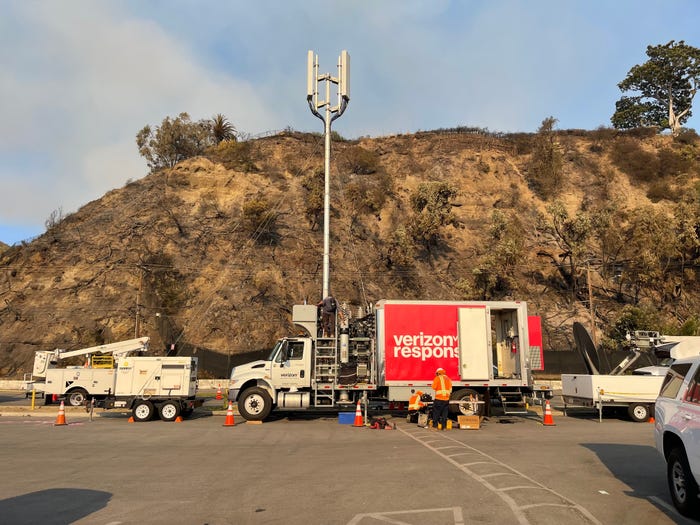CMA calls for price controls in summary of final report about Airwave-Motorola Solutions investigationCMA calls for price controls in summary of final report about Airwave-Motorola Solutions investigation

Motorola Solutions’ Airwave TETRA network in the United Kingdom (UK) will be subject to pricing controls that are expected to cost the vendor giant at least $1 billion in contracted revenue during the next several years, according to a Competition and Markets Authority (CMA) summary of its final investigative decision.
Published yesterday on the CMA website, the final-decision summary seems to reiterate the pricing controls that the CMA proposed in its provisional decision that was released last fall. These controls are proposed as “remedies” to the CMA has determination that Motorola Solutions-owned Airwave is a monopolistic provider that has had an adverse effect on competition (AEC) on the UK public-safety communications market.
“Our estimate is that the AEC we find means that Airwave Solutions, and Motorola, can be expected to make total supernormal profits from the operation of the Airwave Network of around £1.27 billion [$1.58 billion, based on current exchange rates] between 1 January 2020 and 31 December 2029,” according to the CMA summary.
“This is equivalent to charging almost £200 million [$249.2 million] per year more than we would expect to see in a well-functioning market. Supernormal profits they would be able to generate by making interworking [solutions to support interoperable communications between Airwave and the LTE-based Emergency Services Network] more costly would be additional to this.”
Motorola Solutions officials repeatedly have cited the profitability of the Airwave system during the company’s quarterly earnings calls, with CEO Greg Brown once stating that Motorola Solutions executives are always searching for “another Airwave.” Some industry analysts have noted that Airwave has accounted for a significant amount of Motorola Solutions’ international profits in many years.
This fact was reiterated in the CMA summary of its final report.
“These supernormal profits are a reflection of Airwave Solutions’ and Motorola’s ability to set and maintain prices very substantially above the competitive level,” the CMA summary states. “The Home Office and the emergency services in Great Britain are paying a much higher price than we would expect were the market competitive. That enables Airwave Solutions to contribute around 21% of Motorola’s global pre-tax profits while accounting for only around 7% of its global revenues.”
This Airwave charge control “will commence this year” and would continue through the end of December 2029, subject to the findings of a review in 2026, according to the CMA final-report summary. The CMA summary does not specify the new pricing for Airwave services, but the provisional-decision proposed that the UK Home Office pay less than £200 million annually, which would be a 50% reduction in the Airwave revenue that Motorola Solutions is contracted to receive under the terms of the four-year extension signed in December 2021.
While the UK Home Office signed the four-year extension—and a three-year extension before that—the UK government agency was not able to negotiate better terms, because it “has very weak bargaining power,” the CMA summary states. This lack of negotiating leverage exists because there is no alternative to Airwave, because the Emergency Services Network (ESN)—the LTE-based public-safety system that was supposed be finished in 2019— “will not be ready until at least 2026, likely 2029 and possibly later,” according to the CMA.
Martin Coleman, chair of the CMA’s independent inquiry group, said UK emergency services “have to use the Airwave network to protect the public and themselves,” because there is no alternative system that supports mission-critical communications.
“When the original contract period for the Airwave Network came to an end, there was no alternative provider, so Motorola held all the cards when it came to pricing,” Coleman said in a prepared statement that was included in a CMA press release. “As a result, the emergency services are locked in with a monopoly provider with no option but to pay a much higher price than they would if the market was working well.
“We are generally reluctant to impose price controls, but the particular circumstances of this case mean that a price cap is the only effective way of ensuring the emergency services—and the taxpayers who fund them—aren’t paying considerably over the odds. The cap will end the supernormal profits that Motorola has been making while allowing it to make a fair return.”
Motorola Solutions repeatedly has expressed its opposition to the CMA’s investigation and price-control proposal, particularly because the portion that changes the terms of the four-year Airwave extension that the UK Home Office signed to cover the years 2023 through 2026. In addition, Motorola Solutions filings have noted that the competition rules cited by the CMA typically are not used to protect powerful government agencies like the UK Home Office as it signs contracts for the operations of a bespoke mission-critical network like Airwave.
Perhaps most notable, Motorola Solutions’ filings during the CMA investigation repeatedly have cited the fact that the CMA approved of Motorola Solutions purchasing the Airwave TETRA system in 2016. CMA officials have acknowledged approval of the Airwave deal in 2016 but repeatedly have noted that the action was taken when the UK government expected to switch public-safety communications to the ESN by the end of 2019.
Motorola Solutions yesterday provided the following statement to IWCE’s Urgent Communications in response to the CMA releasing the summary of its final report.
“Motorola Solutions strongly disagrees with the CMA’s final decision and believes it cannot be justified on competitive, economic or legal grounds,” according to a Motorola Solutions’ spokesperson. “We will appeal the decision.
“In 2016, the Home Office negotiated and agreed to the fixed-price Airwave contracts, which were also provided to the CMA as part of the CMA’s approval of Motorola Solutions’ acquisition of Airwave. Despite the CMA finding no shortcomings in Airwave’s exceptional service, the CMA intends to forcibly reduce the contractually agreed pricing going forward. We believe this unprecedented overreach will have a chilling effect on long-term investment and contracting with the UK government.
“Motorola Solutions is committed to vigorously protecting its contractual position in delivering the Airwave network, an essential service that operates at the highest levels and is relied upon by the 300,000 emergency-services professionals who protect communities across the UK every day.”
In its provisional decision that was released in October, the CMA proposed pricing regulations that would slash about $1 billion from the Airwave revenue that Motorola Solutions would receive under the current four-year contract—to be effective from 2023 through 2026–that was signed in December 2021 with the UK Home Office.
At the heart of the investigation is CMA’s determination that Motorola Solutions has been realizing “supernormal” profits from its Airwave contract extensions with the Home Office. To address the matter, CMA’s provisional decision proposes limiting Motorola Solutions’ annual revenue from Airwave to less than 200 million pounds—less than half of the 433.5 million pounds in revenue that Airwave reported in 2020.
The Home Office responded to the CMA’s provisional decision by proposing that an additional $600 million be recovered from Motorola Solutions, according to a filing that was released in December 2022. The CMA summary does not specifically address whether this Home Office recommendation was included in the CMA’s final remedy.





